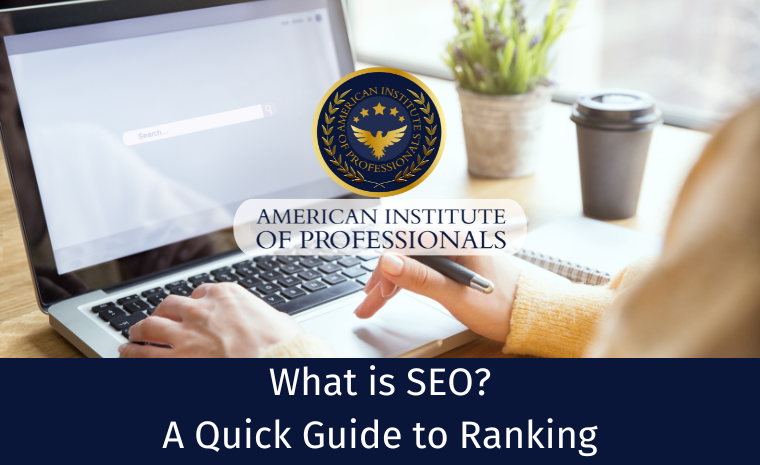In today’s digital landscape, understanding the intricacies of Search Engine Optimization (SEO) is paramount for anyone seeking to establish a strong online presence. Whether you’re a business owner, marketer, blogger, or simply someone curious about how websites rank on search engines like Google, mastering the basics of SEO can significantly impact your visibility and success in the digital realm.
What is SEO?
Search Engine Optimization (SEO), is the process of enhancing your website’s visibility in search engine results pages (SERPs) through various strategies and techniques. So, what is SEO? At its core, SEO aims to make your website more relevant and authoritative in the eyes of major search engines like Google, Bing, and Yahoo, in the following ways:
- Increased Visibility: Internet users turn to search engines when looking for information, products, or services. By optimizing your website, you improve its chances of appearing prominently in search algorithm results, making it more visible to potential visitors.
- Targeted Traffic: SEO allows you to attract highly targeted traffic to your website. By optimizing for specific keywords and phrases relevant to your business or niche, you can connect with users who are actively searching for what you have to offer.
- Credibility and Trust: Websites that rank higher in search results are often perceived as more credible and trustworthy by users. By optimizing your site, you can enhance your brand’s reputation and credibility in the eyes of your audience.
- Cost-Effective Marketing: Compared to traditional advertising methods, search engine marketing offers a cost-effective way to reach your target audience and bring organic traffic. Once your website is properly optimized, traffic generated from search engines brings visitors without the ongoing expenses associated with paid advertising.
- Competitive Advantage: In today’s competitive online landscape, having a well-optimized website can give you a significant edge over competitors who neglect SEO. By staying ahead of the curve, you can capture market share or search terms and outperform rivals in your industry.

How Can I Optimize my Content/Website?
Optimizing your website and content for search engines involves various strategies and techniques. Here are some detailed tips to help you improve your site’s visibility and rankings:
- Search Query Research: Identify relevant terms and keyword phrases that your target audience is searching for. SEO tools can discover high-volume keywords with moderate to low competition.
- On-Page Optimization:
- Title Tags: Craft compelling and descriptive title tags for each page.
- Meta Descriptions: Write concise meta descriptions that accurately summarize your content.
- Header Tags: Use header tags (H1, H2, H3, etc.) to structure your content logically.
- URL Structure: Create clean and SEO-friendly URLs.
- Optimized Content: Develop a high-quality, informative piece of content that addresses the needs and interests of your target audience. Incorporate relevant keywords naturally and avoid keyword stuffing.
- Mobile Optimization: Ensure that your website is mobile-friendly and optimized for viewing on smartphones and tablets.
- Page Speed: Improve your website’s loading speed to enhance user experience and satisfy Google’s algorithm.
- Quality Backlinks: Earn high-quality backlinks from reputable websites. Focus on building relevant external and internal links through guest blogging, content promotion, and outreach efforts.
- Optimized Images: Compress images to reduce file size and improve page load times.
- Regular Content Updates: Keep your website’s relevant content fresh and up-to-date by publishing new blog posts, articles, or updates regularly.
- Optimize for Local SEO: If your business serves a local audience, optimize your website for local search by claiming and optimizing your Google My Business listing, incorporating location-based keywords, and earning reviews from satisfied customers.
- Monitor and Analyze Performance: Use analytics tools to monitor your website’s performance, track keyword rankings, and identify areas for improvement. Regularly analyze data and make adjustments to your SEO strategy accordingly.
By implementing these tips and continually refining your SEO efforts, you can improve your website’s visibility, attract more organic traffic, and ultimately achieve better results in search engine rankings. Remember that SEO is an ongoing process, so stay proactive and adapt to changes in search engine algorithms and user behavior.
Elevate Your Online Presence and Soar Above Your Audience’s Search Queries
At the American Institute of Professionals, we are ready to empower your website and propel it to new heights. Our dedicated team is committed to optimizing your online visibility, ensuring that your brand soars above the competition. Don’t miss out on the opportunity to enhance your digital footprint and connect with your target audience effectively. Click here to get in touch with our SEO experts and start building the pathway to online success today.





